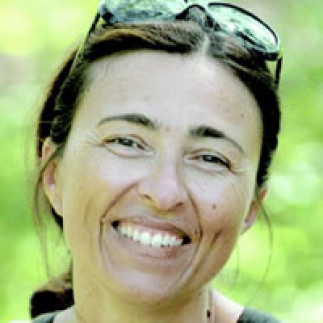Titre : From Molecular to Nanostructured Luminescent Chemosensors.
Endroit : Pavillon J.-A.-Bombardier, salle 1035 de 10 h à 11 h.
Hôte : Professeur William Skene.
La conférence sera prononcée (en anglais) par la professeure Nelsi Zaccheroni, du Département de chimie de l'University of Bologna (Italie).
Résumé : Chemical analysis has been improved by the advent of sensory devices based on chemosensors that are able to transform chemical information (composition, concentration, etc.) into an analytically useful signal. These devices, in fact, find applications in many different areas of great social and economic impact. Among all the possible alternatives of chemosensors, we focussed our research activity on luminescent chemosensors as they present many advantages: sensitiveness, low cost, ease of use, versatility, and they offer the possibility to reach sub-nanometer spatial and sub-millisecond temporal resolution. Our design of efficient chemical sensors is mainly based on the principles of supramolecular chemistry: the assembly of different moieties with each one devoted to a precise function. In this seminar, some systems involving supramolecular species for the detection of metal ions relevant to the biomedical and environmental fields will be examined. The application of these nanostructures brought us to explore the possibility of moving from monofluorophoric systems to multifluorophoric ones, to try and obtain signal amplification effects thanks to local organization. Moreover, core-shell nanoparticles can also make organic chemosensors suitable for environmental and biological applications in water.

